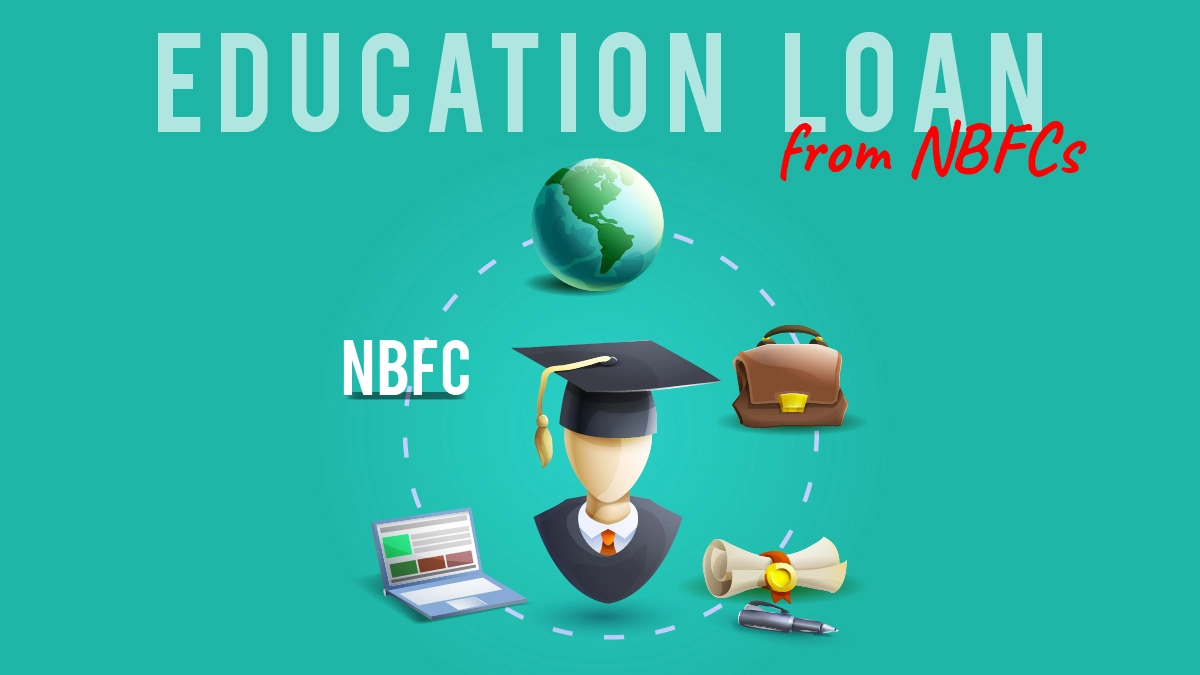https://www.wemakescholars.com/blog/education-loan-to-study-in-switzerland
Abroad Education Loan | Updated

Switzerland is well-known for its chocolates and its natural beauty. It is also home to top-notch universities, like the University of Zurich, the University of Geneva, ETH Zurich, University of Basel, etc. These prestigious universities offer a variety of courses to students who wish to study in Switzerland. Due to the high cost of living in Switzerland, a lot of students from India who have been accepted into universities in Switzerland often turn to education loans to fund their higher studies. This article aims to throw some light on the seldom explored subject of getting an education loan in India to study in Switzerland.
Education Loan Options to Study in Switzerland
An education loan is one of the most prominent sources of higher education funding for most Indian students who wish to study in Switzerland. In India, student loans are divided into two different categories. This categorization is based on the need of collateral security.
Collateral security is basically some sort of asset which is pledged with the lender by a borrower in order to obtain some kind of loan. Abroad education loans in India are divided into secured loans and unsecured loans, based on the need of this collateral security. In order to obtain a secured education loan to study abroad, applicants are required to pledge collateral security.
On the other hand, an unsecured education loan to study abroad does not require applicants to pledge anything. In fact, students have a tougher time trying to secure unsecured education loans, as these loans are granted on the basis of a student’s academic profile and their co-applicants financial profile. In India, such unsecured education loans for abroad studies are provided by Non-Banking Finance Companies (NBFCs) and private banks such as the Axis Bank, ICICI Bank, etc.
Since unsecured education loans are not based on the pledging of collateral security, the lenders pay close attention to factors such as the global ranking of the universities in Switzerland into which the applicants have been accepted, the overall financial capability of their co-applicants to repay their education loan, etc.
An important factor to be considered here is the fact that most lenders of an education loan without collateral do not lend education loans to study in Switzerland when approached directly, as it is not present on their list of eligible countries for an abroad education loan without collateral. Students who had applied for an education loan to study in Switzerland through WeMakeScholars, however, did not face this problem.
In order to get an unsecured education loan to study in Switzerland through WeMakeScholars, students have to fulfil certain requirements;
- They must have an excellent academic background which includes the clause of having no backlogs.
- They must have received a letter of confirmation from a well-ranked institution amongst the numerous prestigious universities in Switzerland
- Their co-applicants need to meet all the requirements placed by the respective NBFCs/Private banks
Unless and until all of the above criteria are not met, it is not possible to get unsecured education loans to study in Switzerland. That leaves students with only one funding option; secured education loans from government banks.
Read about Non-Collateral Education Loan Process: Common Issues & Their Solutions
Secured Education Loans To Study in Switzerland
Secured education loans are granted on the basis of collateral security. In India, a huge percentage of students tend to opt for a collateral education loan for abroad studies, as these are granted by government banks such as SBI, Bank of Baroda, PNB, etc. As the lenders are government-funded financial institutions, the trustworthiness of secured education loans outweighs those of unsecured education loans. In order to be eligible to borrow a secured education loan for abroad studies in India, students must possess the required collateral security.
Most students who seek an education loan to study in Switzerland often tend to approach government banks like the SBI and Bank of Baroda as these institutions are governed directly by the RBI and also offer some of the most competitive offers on their education loan schemes for overseas studies.
Some of the salient features of government bank education loans are:
- Lower interest rates: As of June 2020, the education loan interest rates offered by prominent government lenders vary between 7.6% to 10%. These figures are variable from time to time. Hence, it is recommended that interested students should get in touch with the financial team of WeMakeScholars to get to know the exact values.
- Payment-free moratorium period on education loan repayment.
- Education loan repayment tenure granted to students is of 15 years.
- The processing fees of government bank education loans do not exceed INR 10,000.
- Female candidates are eligible for an automatic deduction of 0.5% in their interest rates for almost all the government banks.
- Students from economically backward sections are eligible to apply for an education loan interest subsidy under various government schemes. They are also eligible to apply for an income tax exemption under Section 80 E of the Income Tax Act.
In order to know about the exact particulars of the education loan scheme which best suits your profile, do get in touch with the financial team of WeMakeScholars.
Types of Collateral Security Required For Secured Education Loans
Collateral security can be of two different types; tangible and intangible. Tangible collateral security refers to immovable properties which fulfil most of the requirements set down by the lending institution. Intangible assets are liquid assets such as fixed deposits, government bonds, etc. Here is a detailed list of the different categories of collateral which are accepted by government banks for an education loan to study in Switzerland.
Immovable Property: An immovable property is one of the most frequently pledged categories of assets as collateral against an abroad education loan to study in Switzerland. This category involves assets like a house, a residential flat, a plot with defined boundaries, an independent house, a non-agricultural land, etc. come under this category. The value of the property must exceed the total education loan amount required by candidates. This is a mandatory requirement and all candidates are required to meet this in order to get any government bank education loan.
Liquid Security: Did you know that government banks do accept liquid assets as collateral against an abroad education loan to study in Switzerland? Assets such as Fixed Deposits, government bonds, life insurance policies from government-approved lenders, etc. are accepted by government banks like the SBI, BoB, etc. as collateral security.
Third-Party’s Assets: This provision is only applicable to government banks, especially SBI education loan and Bank of Baroda education loans. In case if a candidate does not possess any of the above assets or if their values do not cover the required education loan amount, then they can pledge a third party’s assets as collateral security against government student loans. This third-party essentially refers to individuals who are not part of the candidate’s immediate family. For e.g., uncle, aunt, friends of the candidate or the primary co-applicant, etc.
Read about Types of collateral for SBI education loan
Interest Rates of Government Education Loans To Study in Switzerland
Before commencing an education loan process, it is a natural tendency for students to conduct thorough research on the interest rates of an education loan for abroad scheme. The interest rates of private lenders are higher as compared to the government education loan interest rates to study in Switzerland.
The abroad education loan interest rate in India is determined by lenders on the basis of something called the MCLR, or Marginal Cost of Funds-Based Lending Rate. This figure is often considered to be the benchmark on the basis of which most Indian lenders of education loans calculate the abroad education loan interest rates. MCLR is calculated by taking into account various factors such as the tenure premium, the marginal cost of funds, the operating cost, etc.
Although MCLR is the basis of all the overseas education loans to study in Switzerland fixed by lenders in India, most government bank education loan interest rates are calculated as MCLR plus spread. This spread refers to a premium amount levied by banks, in addition to the basic MCLR value.
The abroad education loan interest rate of government banks varies between 9% and 10%. Since they grant education loans on the basis of collateral security, the final education loan amount sanctioned by government banks could go up to INR 1.5 Cr, depending on the value of collateral security being pledged, as well as the applicant’s funding requirements.
Study in Switzerland Requirements For a Student Visa
In order to be able to study anywhere in the world, students from India must possess the student visa which allows them to study and work in that particular country. The Switzerland student visa process could take anywhere from 6 weeks to 12 weeks. Hence, it is recommended that students apply for the same, at least six months before they begin their course in Switzerland. Students who wish to attend their postgraduate studies are required to fulfil certain study in Switzerland requirements:
- They must apply for a ‘D’ category visa (long-stay visa) to be deemed eligible to study in Switzerland if their course lasts for more than three months.
- Student visa applications from those who are above the age of 30 are refused.
- Student visa applications from those who already have a degree in the desired field are also refused.
- Students must make an appointment with their consulate/embassy for their student visa at least six months before the course commencement.
Switzerland Student Visa: List of Documents To be Submitted
List of documents required for a Schengen ‘D’ visa
- Application for long-stay visa (visa D) – three forms, filled and signed
- Four passport-size photographs
- Passport – valid three months beyond the planned stay
- Letter of acceptance issued by a Swiss university
- Proof of payment of the registration and tuition fees – original and copy
- Proof of sufficient financial coverage of living costs in Switzerland for the duration of schooling (21,000 CHF or 19,200 EUR at the beginning of each year of your studies)
- Scholarship/Loan proof – Letter of an institution that all expenses for the study will be covered by the scholarship or loan
- CV
- Letter of motivation
- Commitment to leave Switzerland on completion of studies
As mentioned above, students are required to show the presence of their yearly cost of living in Switzerland in a savings account opened with banks based in Switzerland or international banks which have branches in Switzerland. All applicants of a student visa have to fulfil this requirement in order to be eligible for a student visa to study in Switzerland. Students who are planning on borrowing an education loan to fund their higher studies will be required to avail of a pre-visa disbursement of their loan amounts from their respective government banks.
One of the biggest woes faced by the students who need to withdraw funds from their education loan before their visa process commences is the fact that they have to move mountains to be able to get one from their lending banks. This is a very common issue faced by those who fund their higher education with the help of government bank education loans.
Due to their ignorance of the revisions made in the education loan policies, many bank officials often turn down such requests from students. On the other hand, the students who apply for their Switzerland study abroad education loans in the same government banks through WeMakeScholars, do not have to face such problems due to the fact that the financial officers of WeMakeScholars speak to bank officials on their behalf and make them aware of the policy revisions, thus making it easier for students to be able to avail of a pre-visa disbursement.
If you wish to undergo your Switzerland study abroad education loan process in a hassle-free manner, do get in touch with the financial team of WeMakeScholars at the earliest possible instance. This point marks the end of this article. Do keep reading our blog to stay up-to-date on all the latest developments in the education loan sector.
Note: WeMakeScholars is an organization funded and supported by the Government of India that focuses on International Education finance. We are associated with 10+ public/Pvt banks/ NBFCs in India and help you get the best abroad education loan matching your profile. As this initiative is under the Digital India campaign, it is free of cost. The organization has vast experience dealing with students going to various abroad education destinations like the US, Canada, UK, Australia, Germany, Sweden, Italy, China, France among others




![Education Loan for Working Professionals [Executive MBA] Education Loan for Working Professionals [Executive MBA]](https://www.wemakescholars.com/uploads/blog/Education-Loan-for-working-professionals.webp)
Kindly login to comment and ask your questions about Scholarships & Education Loans